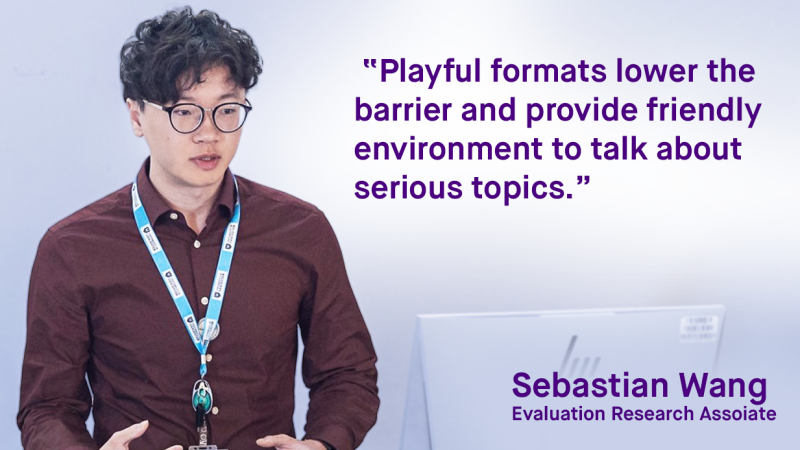Meet Sebastian Wang, the I-REACCH Evaluation Research Associate!
I-REACCH’s Workstream 5 (WS5) works like a project’s iteration engine. We capture staff voices through surveys, interviews and other user-centred methods to reveal how research culture is perceived, and how people hope it will evolve. I turn these insights into visual stories and decision-ready briefs that feed straight back to the other workstreams, allowing them to adjust the development of interventions in real time. WS5 also leads change-and-impact evaluation: I partner with stakeholders across every college to co-design metrics that meet people’s needs and expectation, and track indicators such as sense of belonging, collaboration opportunities and overall research experience to measure both I-REACCH’s impact and the broader research cultural shift.
Anything interesting or cool about your work?
What I enjoy most is the big-picture view I gain from various research activities across the University. Because we gather stories and data in every college and at every career stage, I can spot how people from CLS talks about collaboration while the CSSAH focus on creativity and freedom. I can then turn those contrasts into clear visuals and narratives that everyone can read briefly.
I also embedded creative and participatory methods into our evaluation process. For example, applying LEGO-based discussion where participants can “build” their research environment, or a “Journey Album” workshop in which an internal mirror group can share their lived participation experience by doodle, memes, and images. These playful formats lower the barrier and provide friendly environment to talk about serious topics, and I reckon such innovative methods talking about culture can further foster a positive research culture.
How do you think your work is helping individuals at Leicester and beyond?
I believe these creative, low-barrier methods of gathering feedback and engaging staff amplify junior voices and ensure under-represented colleagues are heard and supported, transforming their lived experience into evidence that will shape future research culture. WS5 then distils these insights into concise reports, short films and exhibitions that travel easily across the University and beyond.
What are the circumstances you face while working at I-REACCH that you think reflect on the wider research culture?
Research culture is not a fixed concept but is shaped collectively by people from different roles, disciplines, backgrounds, and career stages. This diversity in perspectives and expectations means it takes time to establish a shared understanding of what a ‘good’ research culture looks like. Consequently, evaluating change can be challenging: capturing intangible factors such as values, attitudes, and a sense of belonging—and effectively representing these through quantitative and qualitative methods—requires innovative and varied approaches.
Moreover, cultural change differs fundamentally from technological change; it cannot be accomplished through one-off interventions or short-term measures. Assessing the evolution of research culture demands patience: allowing new policies, systems, and practices to take root and giving sufficient time for people’s awareness and behaviours to shift. Therefore, considering the scalability and sustainability is important for I-REACCH and other research culture projects in HE.

